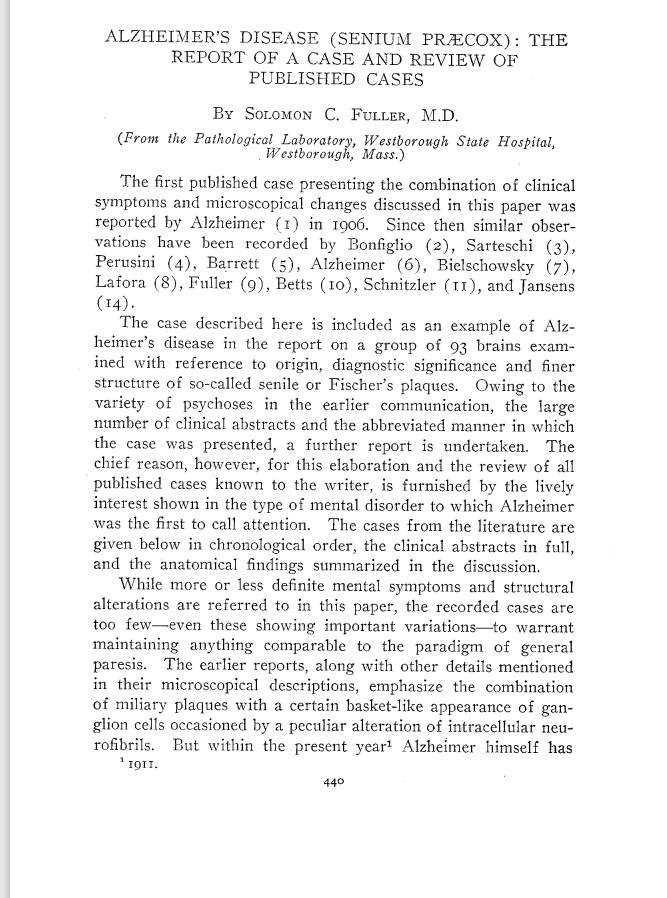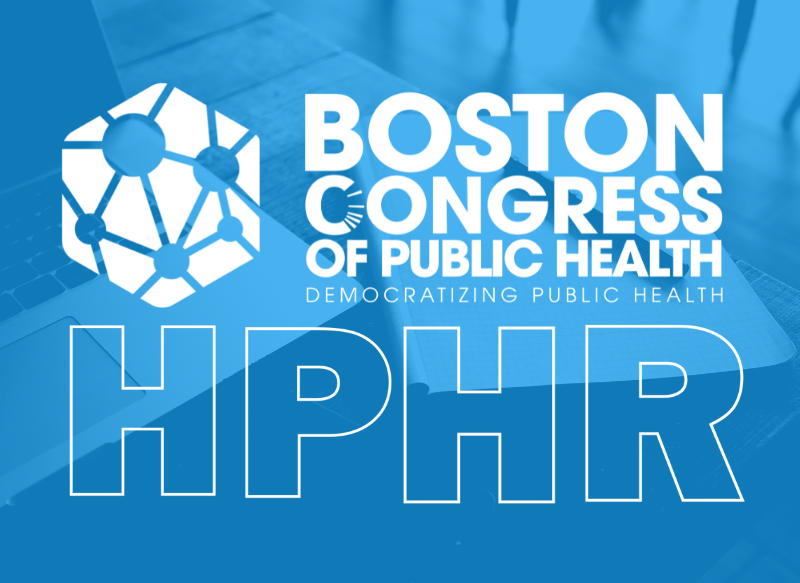Although awareness of racial disparities in Alzheimer’s disease is growing and concerted efforts to address this issue have been made, there is still significant work to be done. Research stands as a powerful tool in our arsenal for combating systemic racism, but understanding its potential requires acknowledging how the dark history of Alzheimer’s Disease research, which itself was tainted with racism, unveils the grim legacy that accompanies it.
While Alois Alzheimer, for whom Alzheimer’s Disease is named, commands the most attention for discovering Alzheimer’s Disease, Solomon Carter Fuller, a neurologist and the first U.S. psychiatrist of African descent, played a crucial role in the early stages of Alzheimer’s research. He conducted seminal research on the physical abnormalities observed in the brains of individuals with dementia, specifically identifying neurofibrillary tangles and miliary plaques. Fuller also contributed critical translations of Alzheimer’s work and published a comprehensive review of Alzheimer’s Disease. Unfortunately, despite these significant contributions, Fuller faced racism in the medical profession, experiencing unequal treatment and limited recognition for his work. Nonetheless, Fuller’s remarkable story serves as inspiration–a trailblazer who overcame immense challenges and blazed a trail in the field of Alzheimer’s Disease research during a time of deep-seated racism and discrimination. Addressing the pervasive influence of modern-day racism on the field of Alzheimer’s Disease calls for embracing a 21st-century approach to research, inspired by Fuller.

Figure 1: Solomon Carter Fuller, the first Black psychiatrist in the United States, studied the pathology of the brain and was a pioneer in the discovery of Alzheimer’s Disease. Photograph courtesy of the NYC Public library.

Figure 2: Solomon Carter Fuller published the first comprehensive review of Alzheimer’s Disease. Citation: The Journal of Nervous and Mental Disease – Alzheimer’s disease: The report of a case and review of published cases – 1912.
The importance of increasing diversity in research cannot be overstated when striving for equity in Alzheimer’s disease studies. Solomon Fuller’s own journey serves as a powerful reminder of the significance of diversity in research. As one of the few African American physicians of his time, he faced formidable barriers. However, his groundbreaking work on the neuropathology of Alzheimer’s disease provided invaluable insights. Incorporating his story emphasizes the need to increase diversity in research participants and actively recruit more African Americans into the scientific and medical fields. This is not only a matter of equity but also crucial for achieving a comprehensive understanding of the disease across diverse populations. Yet, efforts to diversify research should extend beyond traditional approaches.
What if we challenged the conventional research paradigm by exploring innovative ways to bring research studies directly to the community rather than solely focusing on bringing Black individuals into research labs? For instance, mobile laboratory sites or integration of the laboratory into everyday spaces like barbershops, salons, and churches could help foster diversity and inclusion. By embracing such transformative approaches, we can make significant strides toward advancing both equity and knowledge in Alzheimer’s research.
Solomon Fuller’s unwavering dedication to his community underscores the vital importance of community engagement. Despite facing racial disparities in his own life, Fuller actively worked to address racial inequalities in mental health care by training young Black psychiatrists to serve Black veterans of World War I. This commitment to community can inspire modern-day research approaches. While collaboration with community members and listening to their experiences have been emphasized in traditional approaches, we can take it a step further. Imagine conducting research alongside community members, where they actively participate in identifying and documenting community factors that impact brain health. This approach not only generates community-driven hypotheses but also collects data that is truly relevant to the community.
The successful implementation of such an approach can be seen in initiatives like the Stanford One Voice initiative (“The Our Voice Initiative activates the power of people as change agents to build healthier and more vibrant communities. Using the Our Voice Discovery Tool mobile app, local “citizen scientists” document features of their communities that impact their ability to lead healthy lives. They then review their own findings, prioritize areas for change, and mobilize to promote improvements that will support community health.”). Such an initiative serves as a compelling example of the power of community-driven research. Embracing this paradigm fosters a more inclusive and impactful research landscape.
Solomon Fuller’s multidisciplinary approach serves as an inspiration for addressing the impact of racism on Alzheimer’s disease. He recognized the interconnected nature of social determinants of health and the underlying biological processes. Fuller’s diverse academic interests, ranging from pernicious anemia in the “insane” to the effects of belladonna on animal tissue, demonstrate his broad perspective. Similarly, scientists should embrace interdisciplinary research studies that surpass the boundaries of biology and explicitly address the social determinants of health.
The Black Men’s Brain Health (BMBH) organization stands out as a shining example of an entity leading the charge in tackling racism within Alzheimer’s disease research. Their approach is marked by innovative initiatives that are making a tangible impact. One such initiative is the development of an annual conference that empowers researchers to delve into the realm of brain science, focusing specifically on the unique experiences of Black men. What sets BMBH apart is their ability to foster collaboration among diverse stakeholders. By bringing together NFL players, scientists, and community members, they have created an inclusive and dynamic research environment. This collaboration allows for a rich exchange of perspectives and expertise, which is crucial in driving progress and achieving meaningful results.
As a participant in the inaugural Black Men’s Brain Health Scholars program, I have had the privilege of working alongside my mentor, Dr. Robert W. Turner II, a Black former NFL player, as well as leading investigators from the esteemed Boston University Chronic Traumatic Encephalopathy Center. Together, we are developing a study that aims to investigate the impact of repetitive head injuries on
This research has the potential to shed light on a critical aspect of brain health that has long been overlooked.
Additionally, the organization has launched a pioneering Black Men’s brain health research registry, a vital resource that serves as a catalyst for advancing knowledge and understanding in this crucial area. This registry not only facilitates data collection but also encourages participation from Black men, ensuring their voices are heard and their experiences are represented in research efforts.
Through their unwavering dedication and innovative approach, the Black Men’s Brain Health organization is breaking down barriers and propelling progress in the fight against racial disparities in Alzheimer’s disease research. Their work serves as an inspiration, encouraging others to join the cause and collectively work towards a future where health equity is a reality for all.
The efforts to tackle racism in Alzheimer’s disease research can serve as a model for advancing equity in other neurological conditions. Many challenges in addressing racism and disparities are shared across the field of neurology. By identifying common obstacles and solutions, we can work towards creating a more inclusive and equitable healthcare system.
Promoting a holistic approach to equity in neurology research and care is paramount. This involves:
By adopting a comprehensive approach, we can overcome barriers and ensure that all individuals receive equitable care and benefit from advancements in neurology research.
The journey toward addressing racial disparities in Alzheimer’s disease research requires a multifaceted approach. While progress has been made, the dark history of racism in Alzheimer’s research reminds us of the urgent need for change. Solomon Carter Fuller’s story serves as a beacon of inspiration, emphasizing the importance of diversity, community engagement, and interdisciplinary collaboration. By fostering diversity in research, bringing studies to the community, actively involving community members, and embracing interdisciplinary approaches, we can strive for equity and understanding in Alzheimer’s research. The remarkable work of organizations like the Black Men’s Brain Health organization showcases the potential for tangible impact and serves as a model for addressing disparities in other neurological conditions. By adopting a comprehensive approach and acknowledging the impact of systemic racism, we can pave the way toward a more inclusive and equitable future in neurology research and care. Together, we can break down barriers and ensure that all individuals, regardless of race, receive the equitable care and opportunities they deserve.
Racism: prejudice, discrimination, or antagonism directed against a person or people on the basis of their membership in particular racial or ethnic group, typically one that is a minority or marginalized
Structural racism: Inequalities rooted in the systemwide operation of a society that excludes substantial numbers of members of particular groups from significant participation in social institutions
Systemic racism: Inequalities rooted in the systemwide operation of a society that excludes substantial numbers of members of particular groups from significant participation in social institutions
Institutional racism: refers to the policies and practices within and across institutions that, intentionally or not, produces outcomes that chronically favor, or put a racial group at a disadvantage
Anti-black racism: term used to specifically describe the unique discrimination, violence and harms imposed on and impacting Black people specifically.
Source: Boston University Community Service Center and Race Forward
The mission of the Boston Congress of Public Health Thought Leadership for Public Health Fellowship (BCPH Fellowship) seeks to:
It is guided by an overall vision to provide a platform, training, and support network for the next generation of public health thought leaders and public scholars to explore and grow their voice.





